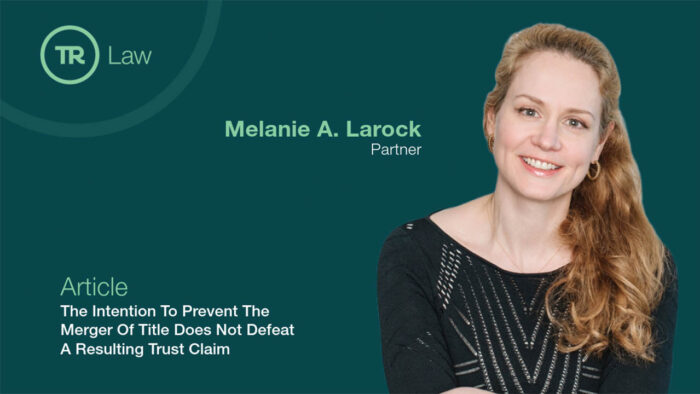Catastrophic impairment designation clarified
Author(s): Darcy R. Merkur
April 26, 2013
Insurers (and insurer examiners) beware — you must accept that any GCS score of 9 or less following a motor vehicle accident will lead to a “catastrophic impairment” designation whenever there is any evidence of a brain impairment. A documented “brain injury” is not required and it does not matter if the claimant made a great recovery.
Yet again a key decision has been rendered confirming that any post-motor vehicle accident Glasgow Coma Scale (GCS) score of 9 or less arising as a result of a brain impairment qualifies as a catastrophic impairment (CAT) within the meaning of the Ontario Statutory Accident Benefits Schedule, even where the score is taken at hospital four days later and while the patient is on medication.
The important CAT designation allows a claimant to potentially access an additional approximately $2-million in nofault accident benefits if needed for their care and rehabilitation.
In Hodges v. Security National Insurance Co., a FSCO appeal decision (Appeal P12-00029) released Feb. 22, director’s delegate Lawrence Blackman upheld the original FSCO decision and accepted the evidence of Dr. Harold Becker that indeed the claimant had suffered a catastrophic impairment based on a reduced GCS score.
In Hodges, the claimant initially had a GCS of 11 on scene and was then intubated, leading to a GCS score of 3. A day or so after the accident, and after the tube was removed and medications reduced, his GCS score improved to 10. In the days following, his GCS varied between 7 and 14 until it stabilized a few days later.
The case largely centred on the validity of a GCS score of 9 taken four days after the accident.
On appeal, the insurance company argued that the GCS scores were invalid since they were influenced by medication and that the scores were not taken within a reasonable amount of time of the accident.
In his appeal decision, Blackman provides an extremely useful and comprehensive summary of GCSrelated CAT decisions. He then proceeds to address the key issues.
With respect to the issue of the connection between the GCS score and a “brain impairment,” Blackman concludes that a connection is required but not a “brain injury” — only a “brain impairment” is required. In other words, scans of the brain that identify a brain injury are not required. Furthermore, the delegate makes it clear that the recovery from the brain impairment is irrelevant, and that the GCS test expressly does not address the “predictive value as to the level of the catastrophic brain injury.”
With respect to timing, Blackman relies on Becker’s evidence essentially for the notion that any GCS score recorded by the ambulance attendants or at the trauma hospital should be considered within a reasonable amount of time, since a reasonable amount of time includes the time the brain impairment remains under investigation (which is until the GCS score is consistently recorded at 15, when they will stop recording it). Blackman further comments that “within a reasonable time” of the accident does not mean at the “optimum time.”
Plaintiff ’s personal injury lawyers hope that this decision will serve to prevent insurers from being able to delay their CAT decision until they have received every possible hospital and ambulance report, since evidence of a “brain injury” is now irrelevant. It is also hoped that the decision will serve to stop insurer examiners from denying CAT designations where a brain impairment may be influenced by alcohol and/ or drugs or medication.
The Hodges FSCO appeal decision adds additional clarity to the “bright line” GCS test enunciated by the Ontario Court of Appeal decision in Liu v. 1226071 Ontario Inc. [2009] O.J. No. 3014.
Insurers and insurer examiners who, in the face of these binding decisions, maintain their denial of the crucial “catastrophic impairment” designation should be on notice that claims for bad faith, mental anguish, special awards and punitive damages will undoubtedly follow. There must be effective recourse for innocent accident victims who are forced to go without necessary treatment and care while they unnecessarily fight to have their clear “catastrophic impairment” designation confirmed.
Darcy Merkur is a partner at Thomson Rogers in Toronto practising plaintiff’s personal injury litigation, including plaintiff’s motor vehicle litigation. Darcy has been certified as a specialist in civil litigation by the Law Society of Ontario and is the creator of the Personal Injury Damages Calculator.
Share this








